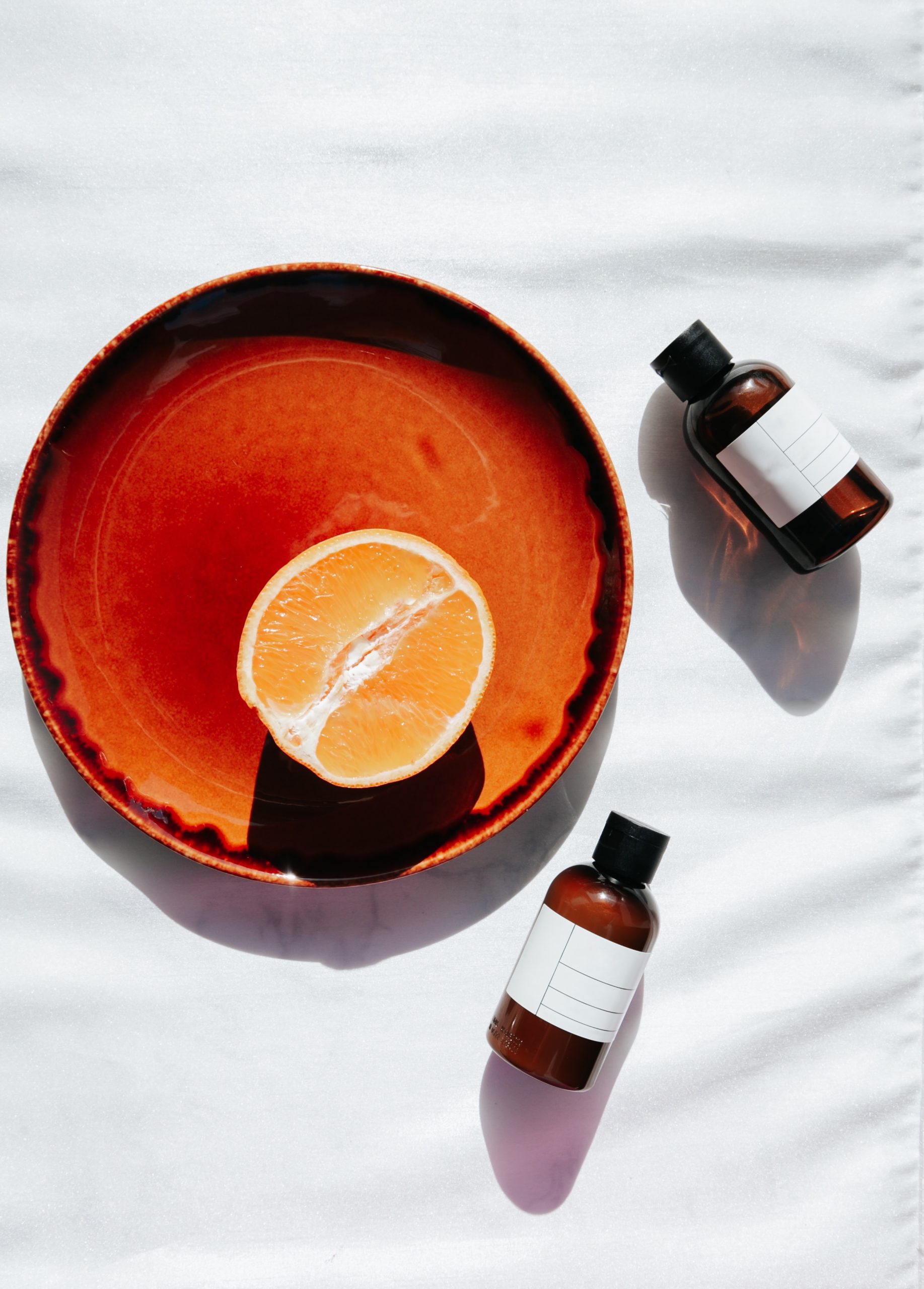Organic Beauty Tips for Normal Skin:
Normal skin is well-balanced, neither too oily nor too dry, with small pores and a smooth texture. To maintain its natural harmony, use gentle organic cleansers that won’t strip away essential oils. Look for natural moisturizers with nourishing ingredients like jojoba oil, shea butter, or avocado oil to keep the skin hydrated without causing excess oiliness. Incorporate plant-based serums containing antioxidants like vitamin C or green tea extract to protect against environmental damage. Apply organic sunscreens with mineral-based ingredients like zinc oxide or titanium dioxide for sun protection without clogging pores. Pamper your skin with floral waters like rose or lavender hydrosols to refresh and tone. For exfoliation, choose organic scrubs with gentle ingredients like oatmeal or finely ground seeds to avoid irritation. Try making your own face masks using ingredients like honey, yogurt, or mashed fruits to nourish and revitalize your skin. Lastly, maintain a balanced diet with plenty of fruits, vegetables, and whole grains, and stay hydrated with water and herbal teas for overall skin health.
Organic Beauty Tips for Dry Skin:
Dry skin requires extra moisture to prevent tightness, flakiness, and discomfort. Opt for nourishing cleansing oils that gently remove impurities without stripping away natural oils. Look for organic plant oils like almond, argan, or coconut oil as moisturizers to provide deep hydration. Utilize hydrating floral toners with ingredients like rose water or chamomile to soothe and balance your skin’s pH. Incorporate antioxidant-rich serums containing vitamins E and A to combat free radicals and promote skin regeneration. For soothing treatments, use aloe vera gel, known for its calming and hydrating properties. Consider products with hyaluronic acid, which can hold up to a thousand times its weight in water, providing intense hydration. Apply replenishing face masks with ingredients like honey, avocado, or cucumber to restore moisture and nourish your skin. Be diligent about using organic sunscreen with moisturizing properties to shield your skin from the sun’s harmful rays. Embrace a diet rich in omega-3 fatty acids found in fish, nuts, and seeds, as these help improve skin’s elasticity and hydration levels.
Organic Beauty Tips for Oily Skin:
Oily skin tends to produce excess sebum, leading to a shiny complexion and clogged pores. Organic gel cleansers, often formulated with ingredients like aloe vera or tea tree oil, effectively cleanse without over-drying. Balance your skin with witch hazel toner, known for its astringent properties, to reduce oiliness and minimize pore size. Choose lightweight organic moisturizers that contain non-comedogenic plant oils like grapeseed or jojoba to provide hydration without causing greasiness. Incorporate tea tree oil into your skincare routine, as it has natural antibacterial properties that can help control acne breakouts. Consider using clay masks once or twice a week to absorb excess oil and purify the skin. Opt for exfoliants with natural alpha hydroxy acids (AHAs) like glycolic acid from fruits to gently slough off dead skin cells and unclog pores. Ensure your organic sunscreen is oil-free and won’t exacerbate greasiness. Avoid heavy makeup products that could lead to further oil production. Maintaining a low-glycemic diet, rich in fresh fruits, vegetables, and whole grains, can also help reduce excess oiliness.

Organic Beauty Tips for Combination Skin:
Combination skin can be challenging to manage as it exhibits characteristics of both oily and dry skin types. Use mild organic cleansers that won’t strip the skin of natural oils and create an imbalance. Hydrate with aloe vera or chamomile toners to soothe sensitive areas and balance oil production. Choose light moisturizers with balanced ingredients to provide hydration to dry areas without adding excess oil to the T-zone. Target specific areas with organic serums containing ingredients like hyaluronic acid for dry patches and tea tree oil for blemishes. Incorporate clay masks into your routine to address excess oil in the T-zone while keeping other areas hydrated. Exfoliate gently and regularly to maintain a smooth complexion without causing irritation. Use organic sunscreens to protect your skin from UV damage. Avoid overusing oil-controlling products, as this may lead to dryness in some areas. Keep your skin hydrated internally by drinking plenty of water and consuming antioxidant-rich foods like berries and leafy greens.
Organic Beauty Tips for Sensitive Skin:
Sensitive skin requires extra care to avoid irritation and redness. Choose fragrance-free organic products to reduce the risk of allergic reactions. Look for hypoallergenic ingredients such as chamomile, calendula, or oat extract in your skincare products, as these are known for their soothing properties. Use organic toners with gentle ingredients to calm and balance sensitive skin. Always patch test new products to ensure they are well-tolerated. Moisturize with plant oils like almond or apricot kernel, which are less likely to cause irritation. For immediate relief, apply organic aloe vera gel to soothe any discomfort. Avoid harsh exfoliants and opt for natural exfoliators like finely ground oats or rice bran. Select sunscreens with physical UV filters like zinc oxide or titanium dioxide, as they are less likely to cause irritation. Reduce stress as much as possible, as stress can exacerbate sensitivity. Additionally, consider wearing organic cotton clothing, which is less likely to irritate sensitive skin.
Organic Beauty Tips for Mature Skin:
Mature skin requires special care to combat signs of aging, such as fine lines, wrinkles, and loss of elasticity. Choose organic cleansing oils or creamy cleansers that won’t strip the skin of its natural oils. Opt for organic moisturizers with ingredients like rosehip seed oil, hyaluronic acid, or peptides, which help improve skin elasticity and reduce the appearance of wrinkles. Incorporate organic serums with potent antioxidants like vitamin C or coenzyme Q10 to combat free radical damage and promote collagen production. Consider using organic face oils, such as argan or evening primrose oil, to provide extra nourishment for mature skin. Apply rejuvenating face masks with ingredients like collagen-boosting peptides or antioxidant-rich fruits to revive the skin’s appearance. Exfoliate gently with natural ingredients like papaya enzymes or jojoba beads to promote cell turnover without causing irritation. Always wear organic sunscreen to protect the skin from further sun-induced aging. Additionally, focus on a diet rich in antioxidants, vitamins, and minerals to support overall skin health and reduce oxidative stress.
Organic Beauty Tips for Acne-Prone Skin:
Acne-prone skin requires careful attention to prevent breakouts and reduce inflammation. Use organic gel or foaming cleansers with ingredients like tea tree oil or neem to cleanse the skin effectively and control acne-causing bacteria. Look for lightweight organic moisturizers that are oil-free and won’t clog pores. Incorporate witch hazel or rose water toners to help balance sebum production and calm redness. Use organic spot treatments with tea tree oil or salicylic acid to target blemishes directly. Consider using organic masks with kaolin clay or charcoal to draw out impurities and reduce excess oil. Gentle exfoliation with natural ingredients like willow bark extract or bamboo granules can help unclog pores without irritating the skin. Choose mineral-based, non-comedogenic organic sunscreens to protect acne-prone skin from UV damage. Be cautious with makeup products and opt for non-comedogenic, oil-free, and mineral-based options. Avoid touching your face throughout the day and wash your pillowcases regularly to minimize bacterial buildup. A diet rich in anti-inflammatory foods like turmeric, ginger, and green leafy vegetables can also aid in managing acne.
Organic Beauty Tips for Hyperpigmentation and Uneven Skin Tone:
Hyperpigmentation and uneven skin tone can be addressed with organic remedies that promote a more balanced complexion. Use organic cleansers with ingredients like licorice root extract or kojic acid, known for their skin-brightening properties. Incorporate organic serums with vitamin C or niacinamide to help fade dark spots and even out skin tone. Consider organic treatments with alpha arbutin, a natural skin lightener derived from bearberry, to target hyperpigmentation. Apply organic face masks with ingredients like turmeric or papaya, which have natural skin-brightening benefits. Gentle exfoliation with organic peels containing fruit enzymes like pineapple or papaya can help remove dead skin cells and improve skin tone. Always wear organic sunscreen to protect the skin from further UV-induced pigmentation. Avoid excessive sun exposure, especially during peak hours, to prevent worsening hyperpigmentation. Additionally, a diet rich in antioxidants, such as vitamin C from citrus fruits and vitamin E from nuts and seeds, can support skin health and combat free radical damage.

Organic Beauty Tips for Dehydrated Skin:
Dehydrated skin lacks water, causing it to feel tight, flaky, and sensitive. Opt for organic cleansing oils or milky cleansers that won’t strip away the skin’s natural moisture. Look for organic moisturizers with hydrating ingredients like hyaluronic acid, glycerin, or aloe vera to restore and lock in moisture. Incorporate floral waters or natural mists with rose or cucumber to provide instant hydration throughout the day. Apply organic face oils with nourishing plant extracts like squalane or jojoba to replenish the skin’s lipid barrier. Use hydrating organic masks with ingredients like honey, avocado, or yogurt to boost moisture levels. Exfoliate gently with organic scrubs containing moisturizing ingredients to avoid further dehydration. Always apply organic sunscreen to protect dehydrated skin from sun damage. Drink plenty of water and herbal teas to keep your body and skin hydrated from within. Avoid long hot showers, as they can strip the skin of natural oils, and consider using a humidifier to add moisture to the air and prevent further dehydration.
Organic Beauty Tips for Dull and Tired-Looking Skin:
Dull and tired-looking skin can be rejuvenated with organic beauty practices that promote radiance and a healthy glow. Choose organic cleansers with brightening ingredients like citrus extracts or glycolic acid to revive the skin’s appearance. Look for organic moisturizers with botanical extracts like rosemary or ginseng to energize and awaken the skin. Incorporate organic serums with vitamin E or green tea extract to combat oxidative stress and promote a more vibrant complexion. Apply revitalizing face masks with ingredients like papaya enzymes or vitamin C to boost radiance. Gently exfoliate with organic products containing natural AHAs like lemon or passion fruit to remove dead skin cells and reveal a fresher complexion. Always wear organic sunscreen to protect your skin from UV damage, which can cause further dullness and premature aging. Prioritize sleep and stress management, as both play a significant role in skin health and appearance. Eat a diet rich in antioxidants and essential nutrients to nourish your skin and enhance its natural glow.
Remember, consistency is key when it comes to skincare. Give your skin time to adapt to organic products, and always conduct a patch test before incorporating new products into your routine. Organic beauty tips can help you achieve healthier, more radiant skin while minimizing the use of harmful chemicals and synthetic ingredients.


